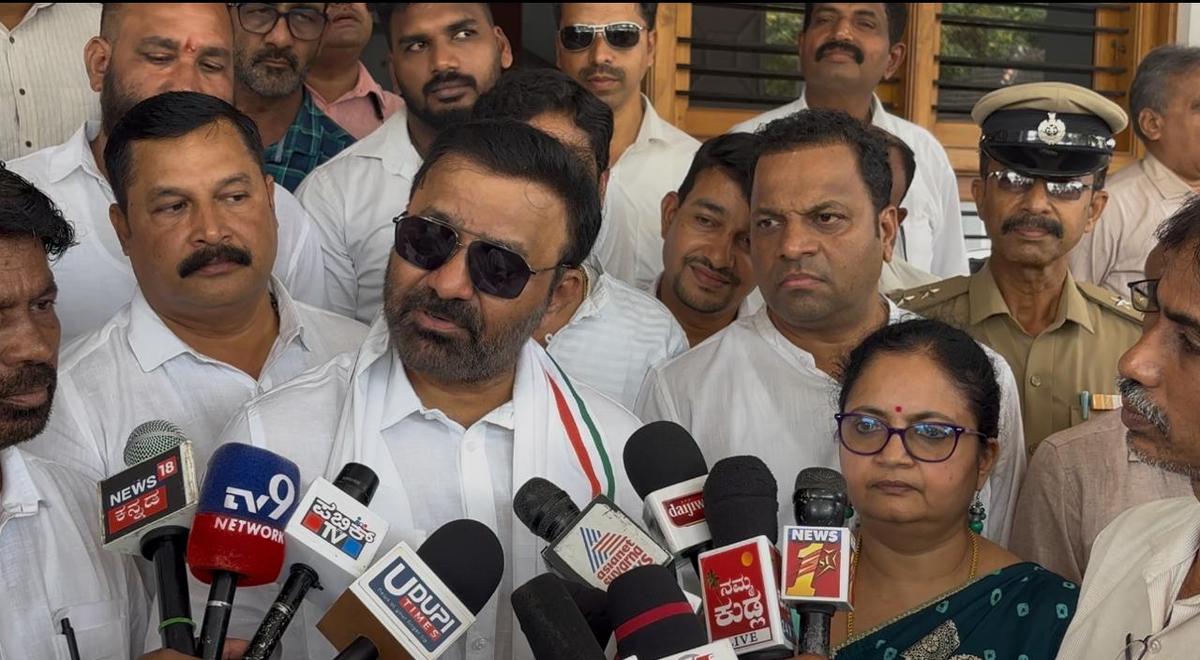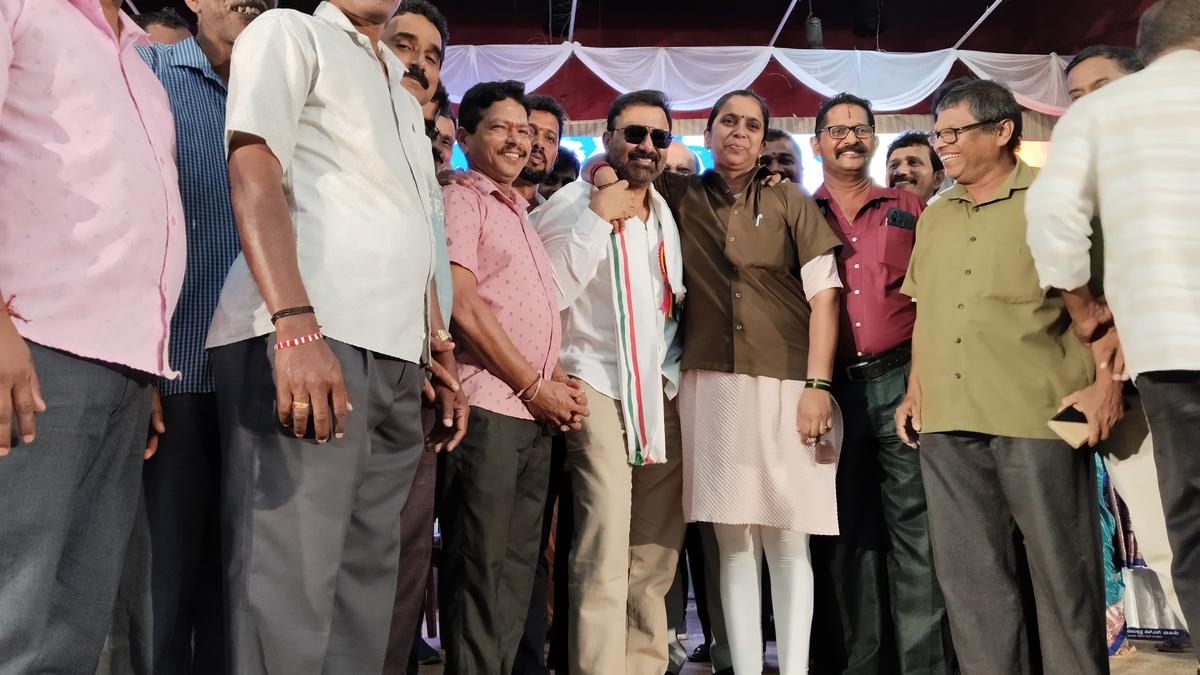Allegations of favoritism have surfaced in Karnataka after multiple tenders were reportedly awarded to NGOs closely associated with Minister Santosh Lad. Opposition leaders and civil society activists have demanded that the government immediately cancel these tenders, citing conflicts of interest and lack of transparency in the bidding process. Critics argue that awarding contracts to organizations with direct links to a sitting minister undermines the principles of fair competition and public accountability, raising questions about governance standards and administrative integrity.
Opposition Voices Concerns Over Fairness
Political opponents have claimed that several NGOs tied to the Minister received preferential treatment in areas including social welfare, rural development, and public service initiatives. They contend that these organizations were granted contracts despite other eligible NGOs presenting more competitive bids. Party representatives have called for an independent audit of all tenders associated with the Minister to ensure compliance with legal and ethical norms.
The issue has sparked a broader debate on transparency mechanisms in government contract awards. Experts emphasize that public trust is critical, especially when state funds are involved, and any perceived conflict of interest must be addressed promptly.
Calls for Immediate Government Action
Activists and members of the opposition have urged the Karnataka government to revoke the controversial tenders immediately. They argue that cancellation would demonstrate a commitment to accountability and help restore faith in the tendering process. Proposals include conducting fresh, open tenders under the supervision of independent committees to prevent favoritism in the future.
Government sources, however, have been cautious in their response, stating that all tenders were awarded following prescribed rules. Officials have promised to review the matter internally and ensure that any potential irregularities are investigated thoroughly.
Historical Context and Precedents
This is not the first instance in Karnataka where allegations of tender favoritism have surfaced. Similar controversies have emerged during previous administrations, particularly involving NGOs and private contractors with political affiliations. Analysts suggest that such cases often create long-lasting political ramifications, affecting public confidence in state institutions. The current situation has intensified scrutiny on Minister Lad’s office, with calls for full disclosure of tender criteria, evaluation processes, and associated decision-makers.

Civil Society and Legal Oversight
Several legal and non-governmental organizations have weighed in, emphasizing the need for accountability. They argue that conflict-of-interest rules should be strengthened and strictly enforced to prevent similar situations in the future. Some advocates have also suggested that judicial intervention may be necessary if administrative action fails to ensure impartiality.
The controversy underscores the importance of maintaining ethical governance practices in public procurement. Experts note that timely, transparent responses can mitigate public mistrust and serve as a precedent for addressing potential favoritism in government projects.

Broader Implications for Public Administration
The debate over these tenders highlights systemic challenges in Karnataka’s administrative framework. Ensuring that contracts and grants are awarded without bias remains a key priority for both political and civic stakeholders. Analysts argue that robust monitoring, independent audits, and clear procedural guidelines are critical to maintaining integrity and safeguarding state resources.
The unfolding scrutiny of Minister Santosh Lad’s associated NGOs could have lasting implications on how tenders are evaluated and awarded in Karnataka, potentially leading to stricter regulatory oversight, more competitive bidding processes, and increased accountability for political leaders involved in public projects.
The controversy surrounding the tenders linked to Minister Santosh Lad has triggered intense political debate across Karnataka. Opposition leaders have intensified their criticism, alleging that these awards reflect systemic favoritism that undermines democratic processes. Party spokespeople have called for detailed scrutiny of all contracts awarded during the minister’s tenure, emphasizing that public funds must be allocated fairly and transparently. Analysts suggest that how the government handles this issue could set a precedent for the scrutiny of political influence in administrative decisions in the state.
Civil society organizations have mobilized to demand full disclosure of the tender evaluation process. They argue that transparency is essential not only to ensure fair competition among NGOs but also to restore public trust in government procurement. Activists have highlighted that contracts awarded without clear justification or oversight can lead to inefficiencies, misuse of funds, and erosion of confidence in public institutions. The issue has thus become a focal point for discussions on ethical governance in Karnataka.
Legal experts have emphasized the potential implications of the controversy on administrative law. They note that any tender awarded to an organization with direct links to a minister may be challenged in court under conflict-of-interest provisions. If proven, such awards could be deemed null and void, and officials involved in the evaluation process might face accountability measures. This possibility has increased pressure on the government to act decisively.
Minister Santosh Lad’s office, while defending the legitimacy of the awarded tenders, has come under intense media scrutiny. Statements from the minister’s aides claim that the tendering process followed established guidelines, including documentation and committee approvals. However, critics argue that procedural compliance alone cannot substitute for ethical considerations, particularly when the recipients of contracts have close personal or political ties to decision-makers.
The opposition has raised questions about whether other ministries may have engaged in similar practices, suggesting that this could be indicative of a wider pattern of favoritism in government procurement. They have demanded a comprehensive review of all NGO contracts over the past five years, insisting that such an inquiry be conducted by an independent authority to ensure impartiality.
In districts where the affected NGOs operate, there has been noticeable public concern. Local beneficiaries of development programs managed by these NGOs have expressed uncertainty about the continuity of services. Activists have stressed that while the ethical and legal dimensions of the controversy are debated, administrative continuity and the welfare of citizens should not be compromised.
The Karnataka government faces a delicate balancing act: addressing allegations of favoritism while maintaining smooth implementation of ongoing projects. Officials have indicated that they are reviewing internal audit reports and consulting legal advisors to determine the most appropriate course of action. Analysts believe that transparent communication regarding the review process will be essential to maintain public confidence.
Media coverage of the issue has been extensive, with editorials, news debates, and investigative reports focusing on the potential ramifications of political influence on public procurement. Commentators have emphasized that accountability and ethical governance must go hand in hand, warning that failure to act decisively could damage the credibility of the state administration.
Some NGOs unaffiliated with Minister Lad have also voiced concerns, claiming that the awards created an uneven playing field that disadvantaged genuinely competitive organizations. They have requested mechanisms to ensure fair evaluation in future tenders, including independent review panels and clear criteria for selection, emphasizing that public trust depends on impartiality.
Political analysts suggest that the controversy could influence upcoming local and state elections, as parties seek to project images of integrity and ethical governance. The tender issue may be leveraged as a campaign talking point, highlighting the importance of transparency and the perception of fairness in public administration among voters.
The social implications of this controversy are significant. Citizens and advocacy groups view fair tender allocation as a measure of governmental accountability. The allegations against Minister Lad have therefore prompted wider debates about the role of political influence in civil services and the need for structural safeguards to prevent conflicts of interest in administrative decision-making.
Public protests and petitions have also emerged in response to the controversy, demanding that the tenders be canceled and reissued under independent oversight. Activists argue that public pressure is crucial in compelling the government to adhere to ethical standards and demonstrate a commitment to fairness in the allocation of state resources.
Experts in governance have highlighted that revising tender policies to prevent similar situations in the future may include clauses restricting participation by NGOs with direct political affiliations. They suggest that long-term reforms, combined with robust auditing and monitoring, could ensure both fairness and accountability in government contracts.
The Karnataka Anti-Corruption Bureau (ACB) has reportedly received complaints regarding these tenders. While investigations are in early stages, officials indicate that the inquiry will examine procedural irregularities, conflict-of-interest concerns, and any possible misappropriation of funds. This reinforces the perception that the matter is being treated with seriousness by law enforcement authorities.
Analysts note that the tender controversy also reflects broader challenges in governance, particularly in balancing political engagement with administrative ethics. Ensuring that public projects are free from favoritism is essential not only for legal compliance but also for maintaining public confidence in state institutions.
Finally, the unfolding situation is expected to influence future government policy on tendering. Whether through stricter conflict-of-interest provisions, enhanced oversight mechanisms, or mandatory transparency disclosures, the lessons from the controversy surrounding Minister Santosh Lad’s associated NGOs may lead to systemic reforms designed to uphold integrity, fairness, and accountability in Karnataka’s public procurement process.
The controversy surrounding the tenders linked to Minister Santosh Lad has triggered intense political debate across Karnataka. Opposition leaders have intensified their criticism, alleging that these awards reflect systemic favoritism that undermines democratic processes. Party spokespeople have called for detailed scrutiny of all contracts awarded during the minister’s tenure, emphasizing that public funds must be allocated fairly and transparently. Analysts suggest that how the government handles this issue could set a precedent for the scrutiny of political influence in administrative decisions in the state.
Follow: Karnataka Government
Also read: Home | Channel 6 Network – Latest News, Breaking Updates: Politics, Business, Tech & More

